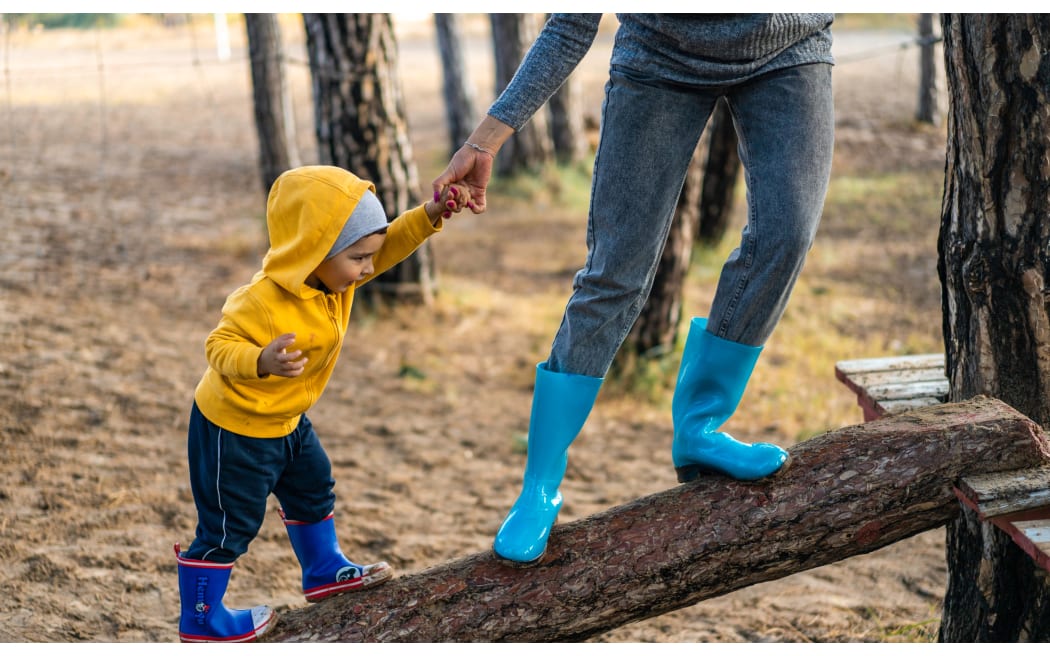
Photo: befunky.com
Does your toddler suddenly prefer your co-parent? It’s not you, it’s them, says parenting guru Maggie Dent.
She says young children are only capable of holding a complete attachment to one person at a time and it’s “quite normal” for toddlers to suddenly decide that only one specific parent will do.
Dent, who has four sons and seven grandchildren, is a former teacher and counsellor, author of numerous books and the host of the ABC podcast Parental as Anything.
“I've got a grandson at the moment who turns two in May. And my poor son, he’s just spare because he's now nowhere near good enough, it’s all Mummy do it, Mummy do it.”
While it's a natural stage of development, dealing with it can be tough, Dent says.
“We're biologically wired to react strongly emotionally to rejection, because we are a social species. So even though it's a little toddler, and you can say in your head, ‘they're emotionally immature, they don't have the brain architecture to be able to make really reasoned, logical choices’, in the heat of the moment, it hurts so much.”
Dent says being aware of what’s happening and sharing the parenting load will help stop this preference from becoming an engrained pattern over time. She says creating boundaries and validating the child’s emotions are a good first step.
“Every now and then I think we’ve just got to, you know, be real with our kids… ‘I know you would love mummy to do it, but mummy's actually gone to the toilet. Mummy's gone out to do some shopping, mummy is actually having a rest’.
“They will cry and protest. But that's a protest cry. It's not one of the cries that says, ‘this is a threat to my survival’. And if you've got a child in that window, you know you're having meltdowns around the colour of a cup. So, it's not a serious thing. It's frustrating and it can be really annoying. However, we really encourage you to keep on stepping in with great joy, lightness and laughter as they gradually get used to the fact that sometimes, here's the other parent and they've done it quite well, too.”
Coping with this stage requires perspective and support from your co-parent, Dent says.
“I think what gets frustrating is that the exhausted parent can sometimes lose their joy and delight... as well as the other parent being the excluded one and trying desperately to do everything, and then you end up with a very unhappy household.”
She says parents need to tag in for each other and recognise when things are getting tough.
“Everyone is a better parent when they’ve been able to have a break. It doesn't even have to be a very long one. You know, to have that wee in peace, to have a cup of coffee by themselves. You know, it resets us emotionally and I think that's what we need.”
Distracting a child with something they like is a much more successful strategy than laying down the law, Dent says, not least because it gives the parents a chance to re-group.
“Kids are drawn to the warmest parent around them. How do I be firm and loving and warm, that’s a challenge for all of us.
One on one time with each parent is crucial, right through to teenage years, Dent says.
“Our rooster children, the ones that push all our buttons, they're often a little bit trickier to have those wonderful, warm, deeply enmeshed relationships with because they're often about their own importance. Often the sensitive or gentle child is drawn to the safest, warmest parent.”
If the parental preference exists with children over 10, Dent says this can often come down to how the parents themselves approach the role.
“Creating a warm relationship can be different for a dad and a mum, but they’re equally important.”

